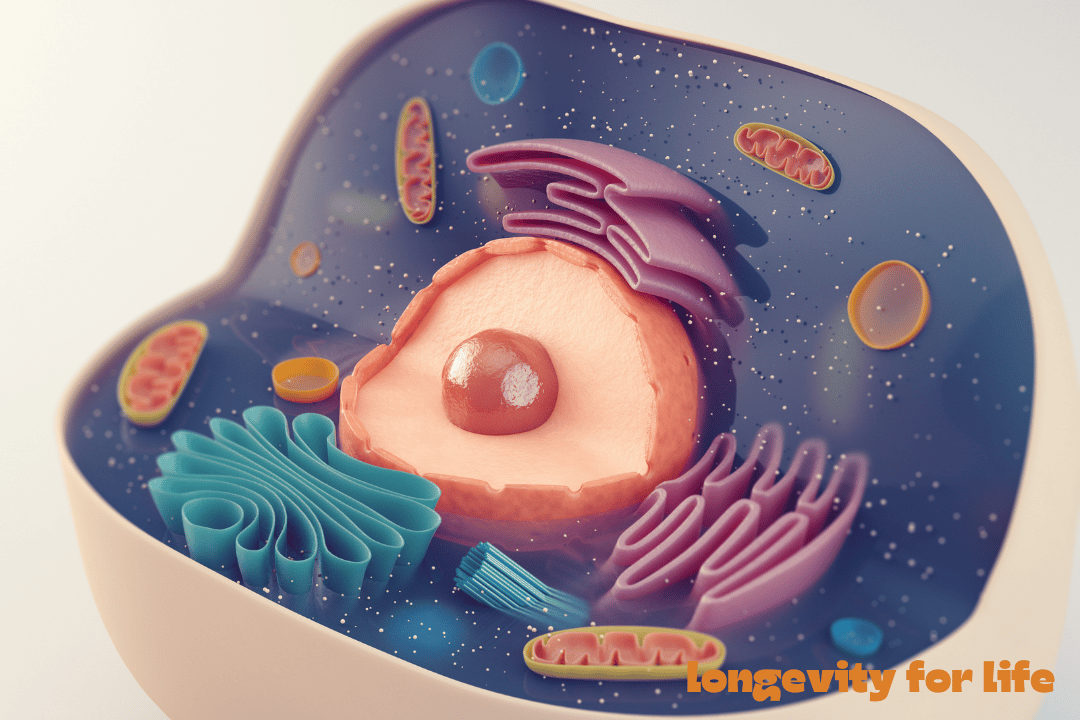
In today’s email:
Fat Chance: Exercise is changing how our fat functions, even without weight loss!
Sport Sort: Some sports tack on the years, others… not so much.
Mito Mania: Power up your brain with mitochondrial health tips!
TOP STORY

Healthy Fat? Exercise Might Be The Key (Even Without Weight Loss!)
Ever heard the term "metabolically healthy obesity"? It sounds strange, right? Obesity is often linked to serious health problems like diabetes and heart disease. However, research has found that some people who are technically considered obese by BMI measures, are surprisingly healthy. They have normal blood sugar, healthy cholesterol, and good blood pressure. So, what's their secret?
Scientists are starting to think it has to do with the quality of their fat tissue, not just the amount. It turns out, not all fat is created equal.
Think of it this way: your body stores fat like a reserve tank for energy. Healthy fat tissue is better at storing lipids (fats). When our bodies can't store lipids properly, they end up circulating in the bloodstream and accumulating around organs and muscles. This can lead to inflammation and insulin resistance, which are major drivers of chronic diseases.
Now, here's where it gets interesting. A recent study in Nature Metabolism found that exercise can dramatically improve the health of your fat tissue, even if you don't lose weight. Researchers compared people with overweight or obesity who exercised regularly to those who didn't. Both groups had similar BMIs and body fat percentages, but the exercisers had much healthier fat.
What did the researchers discover when they analyzed the fat cells from those who exercised regularly?
Better Structure: The fat tissue had a more favorable extracellular matrix composition.
Less Inflammation: There were fewer inflammatory immune cells hanging around.
More Energy Production: The fat cells had more mitochondria, the powerhouses of our cells.
Improved Storage: The fat cells were better at storing lipids.
More Blood Vessels: The fat cells had more capillaries, which means better oxygen and nutrient delivery.
Think of it like this: even if exercise isn't melting fat away, it's making the fat you do have healthier. This means exercise can provide huge health benefits, regardless of what the scale says. Even just by improving the ability for the lipids to be stored and to quell inflammation.
*Summarized from a briefing by Dr. Rhonda Patrick.
Which Sports Add Years to Your Life (and Which Might Shorten It)?

We all know exercise is good for us, but does the type of sport matter when it comes to lifespan? A recent study looked at a huge group of over 95,000 athletes from around the world to see how different sports affected how long they lived.
The researchers compared the athletes' lifespans to the average lifespan in their country and found some surprising results. It seemed that male athletes generally got more lifespan benefits from sports than female athletes. Pole vaulting and gymnastics were at the top of the list for men, adding over 8 years to their lives! On the other hand, volleyball and sumo wrestling were associated with shorter lifespans. This may have something to do with the aerobic and anaerobic elements of each sport, mixed sports seemed to be the best for lifespan.
Here’s a quick rundown of what they found:
Racquet sports (tennis, badminton): Consistently positive for both men and women, adding up to 5.7 years for men and 2.8 years for women.
Team sports: Mixed bag! Cricket, rowing, and baseball seemed beneficial for men, while volleyball was linked to shorter lifespans.
Combat sports: Sumo wrestling was linked to shortened lifespans. It’s possible injuries played a part.
The study has some limitations, especially when it comes to female athletes because there were much fewer included. However, it highlights the fact that what we do when we exercise and how it’s implemented can make a big difference to how we live our lives.
Together with longevityfor.life

Want to live longer and feel stronger? The Life Extension Handbook from longevityfor.life is your ultimate guide to unlocking a healthier, longer life. Packed with actionable tips on boosting cardiovascular health, building muscle strength, optimizing nutrition, and mastering your sleep habits, this handbook gives you everything you need to thrive at any age. Whether you're looking to crush your fitness goals or simply feel your best, this guide has you covered. Grab your copy today and start your journey toward lifelong vitality!
Power Up Your Brain: How to Keep Your Mitochondria Healthy for a Longer, Sharper Life

Mitochondria are the tiny powerhouses inside our cells that provide energy. But as we age, these powerhouses can start to break down, leading to problems in the brain and nervous system. This breakdown, called mitochondrial dysfunction, is linked to many neurodegenerative diseases like Alzheimer's and Parkinson's.
So, what can we do to keep our mitochondria humming along?
Researchers are exploring several promising strategies:
Boosting Energy Production: Supplements like NAD+ precursors, idebenone, pyruvate, and succinate can help mitochondria produce energy more efficiently.
Stabilizing Mitochondrial Membranes: Drugs like SS-31 and ursodiol can help stabilize the membranes of mitochondria, reducing energy leaks.
Promoting Mitochondrial Turnover: Compounds like caffeine, rapamycin, and urolithin A can help the body get rid of damaged mitochondria and create new, healthy ones.
Antioxidant Treatment: Antioxidants can help protect mitochondria from damage caused by harmful molecules called free radicals.
Another area of research is mitochondrial transfer, where healthy mitochondria are transferred into damaged cells. It's also possible that mitochondrial-derived peptides may be the reason why administered mitochondria could potentially change cell processes.
Keeping our mitochondria healthy is crucial for a healthy brain and a longer life. By targeting mitochondrial dysfunction, we may be able to prevent or slow down the progression of neurodegenerative diseases and promote healthy aging.

This email was brought to you by Scott Ward
Was this email forwarded to you? Sign up here.
*Some links may contain affiliate and sponsorship associations to aid in newsletter support.
If you are loving the Beehiiv platform, try it out FREE for 30 days, plus 20% off your first 3 months
